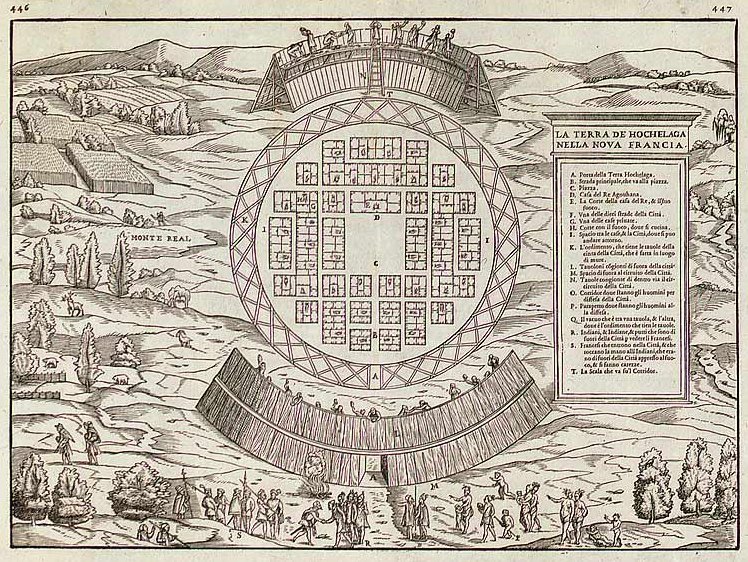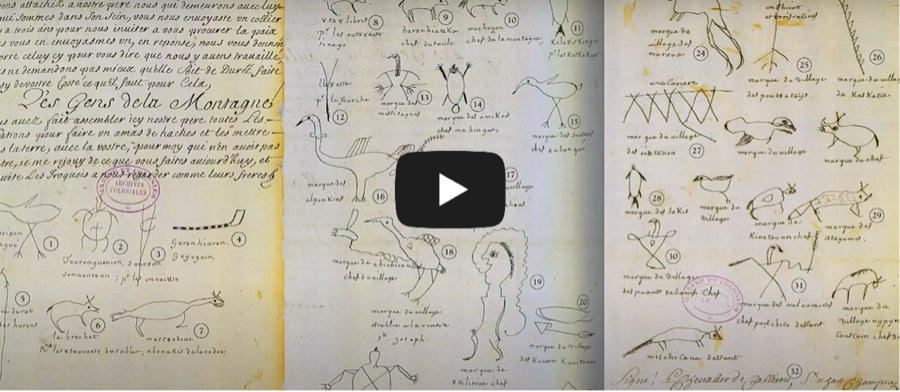McGill's History with Indigenous Peoples
McGill must pursue an unedited truth about its historical and contemporary relationship with First Nations, Métis and Inuit peoples to meaningfully inform its goal of reconciliation.
As Canada's Truth and Reconciliation Report emphasized, reconciliation must begin with the truth. This must include proper and ongoing consultation with Indigenous peoples, and the recognition of the Indigenous traditional territory upon which McGill is situated.
This page will be updated with new information as McGill seeks to better inform the public about McGill's history with Indigenous peoples.
In the video above, Nicole O’Bomsawin of the Abenaki First Nation shares some of the histories of First Nations in the Montreal area.
History of McGill and Indigenous Peoples
Suzanne Morton is a History and Classical Studies Professor at McGill who has produced works about McGill's history with Indigenous peoples.
- For more information about the history of McGill, read Professor Morton's overview of McGill's history with Indigenous peoples:
 Indigenous McGill October 2019.
Indigenous McGill October 2019. - Professor Morton has also created a video entitled "Colour, Colonialism and the McGill Redmen: A Short History". McGill's men's varsity team name has since been changed.
History of the Region
Kahnawà:ke is one of the eight communities of the Kanien:kehá'ka (Mohawk) Nation. It is also the Indigenous community located nearest to McGill. Visit the Kahnawà:ke website to learn about the community's history.
The Kanien:kehá'ka are one of the six nations who comprise the Haudenosaunee Confederacy. Watch Haudenosaunee’s Legendary Founding Video below to learn more about the formation of the Haudenosaunee Confederacy.
Historical Maps of the Region

This is a map of Hochelaga in New France, or "La Terra de Hochelaga Nella Nova Francia," clearly situated next to Mount Royal, or "Monte Real."

This is a map of Kawenote Teiontiakon, or the Island of Montreal, with Hochelaga indicated.

This is a map from 1815 of Kahnawake, or Sault St. Louis.

This is a map of Indigenous territories today. In the top right corner, you can see the area where Montreal is now situated.
Hochelaga Rock
At the left of the Roddick Gates stands the Hochelaga Rock, established by Parks Canada to commemorate the Iroquois settlement that stood on the land where McGill is now located.
For more information about Hochelaga Rock, visit the Hochelaga Rock webpage.
History of Indigenous Peoples and Canada
Take a Free Class About Indigenous History
- Indigenous Canada - a 12-lesson Open Online Course that explores Indigenous histories and contemporary issues in Canada. From an Indigenous perspective, this course explores key issues facing Indigenous peoples today from a historical and critical perspective highlighting national and local Indigenous-settler relations.
Reading Materials
- The Canadian Encyclopedia Article - "Indigenous Peoples in Canada," written by Zach Parrott, discusses demographics, history, and a list of Indigenous peoples in Canada, as well as providing educational guides.
- The Canada Guide Chapter - Chapter 7, entitled "The Aboriginal Peoples of Canada," provides a basic historical overview. This visually appealing guide offers information for all audiences.
- Facing History and Ourselves Series - "Stolen Lives" is a program that walks students and teachers through an examination of the devastating legacy of Indian Residential Schools.
Historical Timelines
- The Canadian Encyclopedia Indigenous Timeline - This timeline presents key events and developments in Indigenous history in what is now Canada, from Time Immemorial to the present day. While no timeline can be exhaustive in its coverage, it provides a broad chronological overview.
Documentaries
- The National Film Board of Canada (NFB) has a section of films dedicated to Indigenous peoples.
- 10 Documentaries on Indigenous Life in Canada - To celebrate National Indigenous History Month, here are some documentaries compiled by CBC to learn about the history of the first peoples of this land, and the activists fighting for their future.
Podcasts
Before reaching out to Indigenous communities for guidance or research initiatives, McGill encourages students, faculty, and staff to learn about the land, colonialism in the past and present, and McGill's current and historical relationships with local communities.




